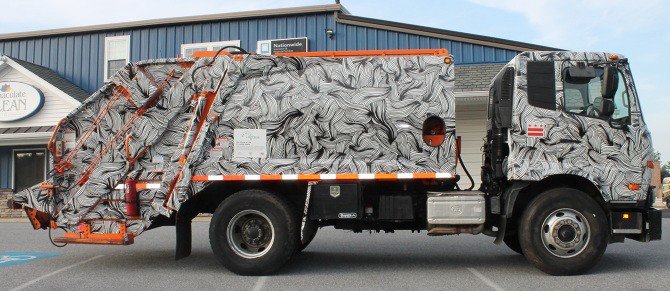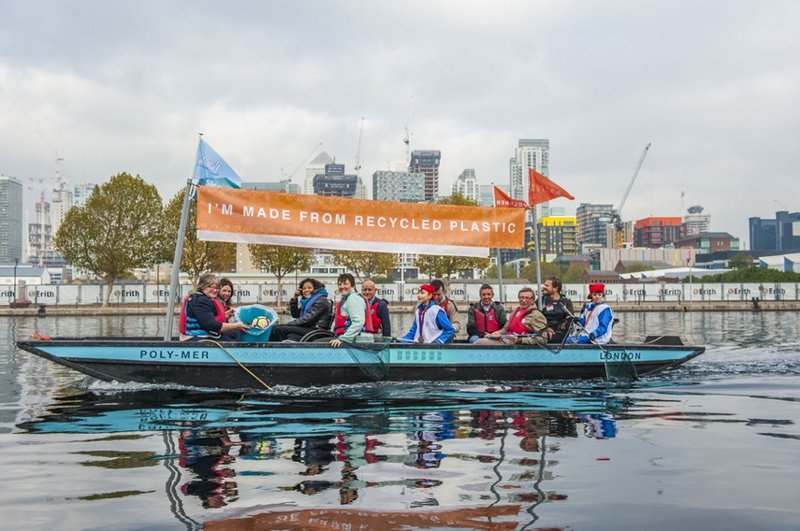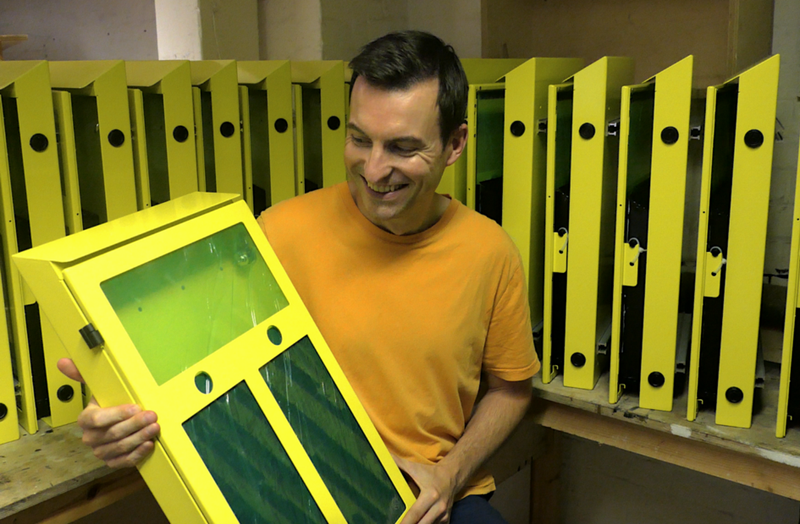On Purpose: Career Change & Clairvoyance
Inspecting Ballot Bins, Hubbub’s voting ashtray, in the vaults of Somerset House
The On Purpose Interview
The harder I tried to focus on the digits in front of me, the more they lurched across the paper. I wrote down new numbers but they were just as unreliable, slipping from my grasp just as I pinned them down. Sipping water was turning into a nervous tic. Nothing seemed to relate to anything else. I sipped more water. What was the question again?“23 divided by 5”. My interviewer looked disappointed. “What”, she asked, hesitantly indicating my ‘answer’, “what is this number?”
It had all been going so well. I had spent a week practicing mental arithmetic and basic maths in preparation for my On Purpose interviews, and particularly the case study. I had done all the sample cases I could find, reviving skills I lost as a teenager: long division, fractions, ‘showing my working’. I went into the interview confident that I could handle whatever was thrown at me — that even if I wasn’t the slickest of mathematicians, I could do the basics well enough to get by.
My case study cast me as the manager of a regional waste and recycling company. We were facing tough new competition from Veolia, a giant in the sector. I had to work out our different business models from the short description and some costings, and think about how I could respond to the threat. I didn’t know who Veolia were; I had never given much thought to how the waste and recycling markets work. But I had spent a few years running a small business in the music industry and was on familiar enough ground to make sense of it all. And yet when I panicked during some routine calculations and the numbers slipped their moorings, I could feel my future prospects drifting away with them…

Rubbish Art: truck from Washington DC’s ‘Designed to Recycle’ programme. Design by Carolyn Sewell.
Career Change
On Purpose helps mid-career professionals transition into the social enterprise sector via a year-long programme of paid work placements and training. My knowledge of the sector was pretty minimal but I knew it was right for me. Despite my arithmetical brainfreeze during the case study I was able to show that I understood the problem, and the section devoted to solutions was much more productive. I was delighted to get a place in the April 2016 cohort. I hoped On Purpose would help me kickstart a career in an environmentally-focused business or in the sustainability sector. I could not have predicted that my interview would so precisely foreshadow some of my future work. Nor would I have anticipated that the training would prepare me so well for it.
How many commercial waste companies serve St Albans? How many trips do their trucks make each week? What do they recycle? Cardboard? Food waste? Are any of their trucks electric? What do they charge their customers? These are the kind of questions we found ourselves asking recently at Hubbub, my current employer, when St Albans Business Improvement District (BID) appointed us to help them understand and improve the commercial waste and recycling market in their medieval city centre. “What’s Veolia’s market share?”, I found myself wondering, with a rather satisfying sense of déjà vu.
Hubbub
Our mission at the environmental charity Hubbub is to help people live greener, healthier lives. Hubbub Enterprise, the trading arm that I run, usually does this by providing products and services to businesses and local government. For example, we run Plastic Fishing trips in Canary Wharf for corporate clients. We inspire and educate them about marine plastics, packaging, the circular economy and more, and our profits contribute to trips for London schools. Hubbub is one of the most creative and innovative companies tackling our throwaway culture in the UK, and through our award-winning coffee cup and litter campaigns we have become a leading voice in the recycling world. Still, the St Albans project posed some new challenges for us — and I have found myself repeatedly drawing on my On Purpose training as I support the Project Lead, Silvia Kerste, to tackle them.

Poly-Mer, Hubbub’s 99% recycled plastic boat which takes people Plastic Fishing
A Small Fraction of What I Learned
One of the first sessions for any new OnP cohort is ‘Problem Definitions’. It’s a technique swiped from the strategy consultancy world and the idea is that to solve a problem you must begin by stating it correctly. It is, like many simple concepts, often harder than it sounds. So we sat down with the CEO of St Albans BID to work through the issues and come up with an agreed statement: “How can St Albans BID best help its members get improved commercial waste services, which enhance the street scene and reduce environmental impact, within its first term?” It’s not a work of literary beauty, but by defining who we are seeking to benefit, how, and when, this question has helped keep us on track throughout our work. And as every On Purpose Fellow knows, where there is a problem definition there is usually an ‘issue tree’ close behind. While I can’t claim that we produced a flawless tree, the thought process it requires enabled us to see all the elements of the project, and to prioritise them.
There were more basic things, too. Before On Purpose, I had never opened PowerPoint. I think I had seen two slide-based presentations in over a decade. My Excel skills were good for the music industry, which is generally suspicious of professional competence, but hopeless when compared to ex-corporate friends in my cohort. I had certainly never used the word ‘stakeholder’, let alone used a stakeholder mapping session to determine an approach to research. These things that I learned in my year with On Purpose, and many more, have fed into our work in St Albans as well as my work and career as a whole.
So I go back to that case study interview. I’m too logical to see it as anything other than serendipity, but I can take pleasure in how it almost precisely anticipated the work I would go on to do. And in how the On Purpose programme equipped me for that work. It’s almost as if they planned it.
If you would like to find out more please do get in touch. I’m also on Twitter and LinkedIn. Check out Hubbub and sign up for our newsletter via our website.

